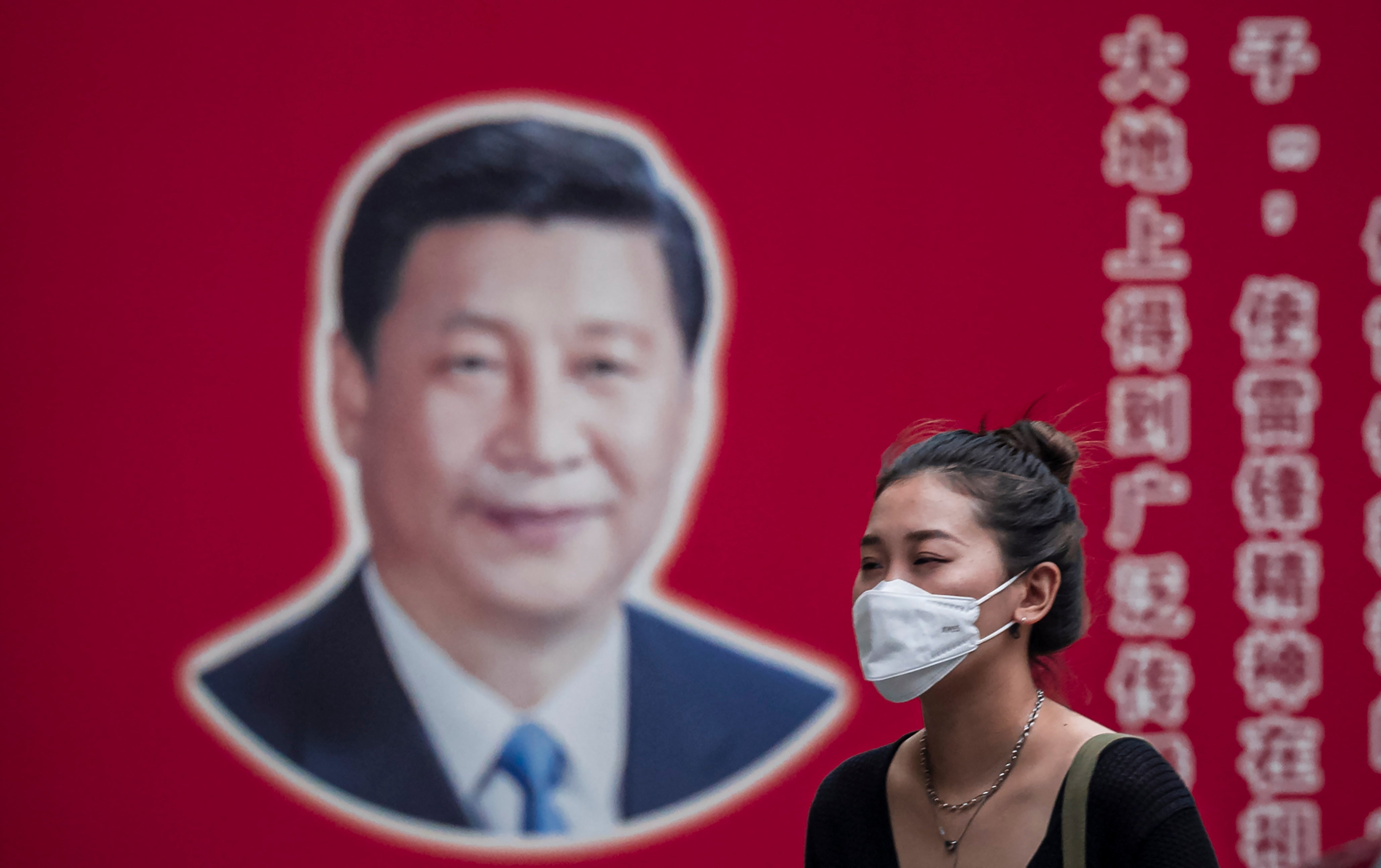Banned Chinese broadcaster CGTN fined £200,000 by UK watchdog over privacy rules breach
Following two complaints involving two high-profile Hong Kong dissidents

Your support helps us to tell the story
From reproductive rights to climate change to Big Tech, The Independent is on the ground when the story is developing. Whether it's investigating the financials of Elon Musk's pro-Trump PAC or producing our latest documentary, 'The A Word', which shines a light on the American women fighting for reproductive rights, we know how important it is to parse out the facts from the messaging.
At such a critical moment in US history, we need reporters on the ground. Your donation allows us to keep sending journalists to speak to both sides of the story.
The Independent is trusted by Americans across the entire political spectrum. And unlike many other quality news outlets, we choose not to lock Americans out of our reporting and analysis with paywalls. We believe quality journalism should be available to everyone, paid for by those who can afford it.
Your support makes all the difference.A Chinese state-owned broadcaster has been fined £200,000 for failing to comply with UK broadcasting rules.
Media regulator Ofcom said it had imposed the fine on Star China Media Limited (SCML) “for serious breaches of our fairness and privacy rules on its CCTV and CGTN services”.
SCML is the UK licence holder of the international English-language satellite news channel China Global Television Network (CGTN), formerly called CCTV.
In February, its broadcast licence was suspended and revoked by Ofcom after the regulator found the channel was “ultimately controlled by the Chinese Communist Party”.
Under UK broadcasting law, licensees must have control over their service and its editorial policies and cannot be controlled by political bodies.
Ofcom said SCML “did not have editorial responsibility” over its own service and that CGTN was “the ultimate decision maker” over programmes.
The network has been issued with two £100,000 fines following separate complaints about unfair treatment of individuals in programmes broadcast on CGTN between 2016 and 2019.
The 2019 complaint involves a former official at the British consulate in Hong Kong, Simon Cheng, who disappeared for 15 days while on a 2019 business trip to China.
Chinese police claimed Mr Cheng had been detained for “soliciting prostitutes” and a video showing him “confessing” was published by CGTN.
Mr Cheng, a Hong Kong citizen, said he was tortured, beaten and interrogated by Chinese secret police who forced him to confess. He has since been granted political asylum in the UK.
The other complaint involves Michael Gui Minhai, who disappeared while on holiday in Thailand in 2015. Beijing said he was a “fugitive” who had apparently returned to China voluntarily to serve a two-year prison for a drink-driving offence.
Mr Gui, who holds Swedish citizenship, was rearrested after his release while on a train with Swedish diplomats. In February 2020, he was handed a 10-year prison sentence in a Chinese court for “illegally providing intelligence overseas”. China does not recognise dual citizenship.
A CCTV news broadcast showed footage of him appearing to express regret over drink-driving charges for which he was initially imprisoned – footage that he claims he was “forced into taking part” in “circumstances where he was being held incommunicado”.
Mr Gui was one of five owners of a bookstore in Hong Kong who went missing in 2015 and were taken to China. Four were later freed. Mr Gui remains under detention in China.
It is not uncommon for Chinese criminal suspects to appear in “confessional” videos.
Ofcom upheld the two complaints “after we found the individuals concerned were unfairly treated and had their privacy unwarrantably infringed.”
The regulator said CGTN had “failed to obtain their informed consent to be interviewed” and did not air “material facts which cast serious doubt on the reliability of their alleged confessions”.
The broadcaster was handed another £225,000 fine in March for breaching fairness, privacy and due impartiality rules.
Join our commenting forum
Join thought-provoking conversations, follow other Independent readers and see their replies
Comments